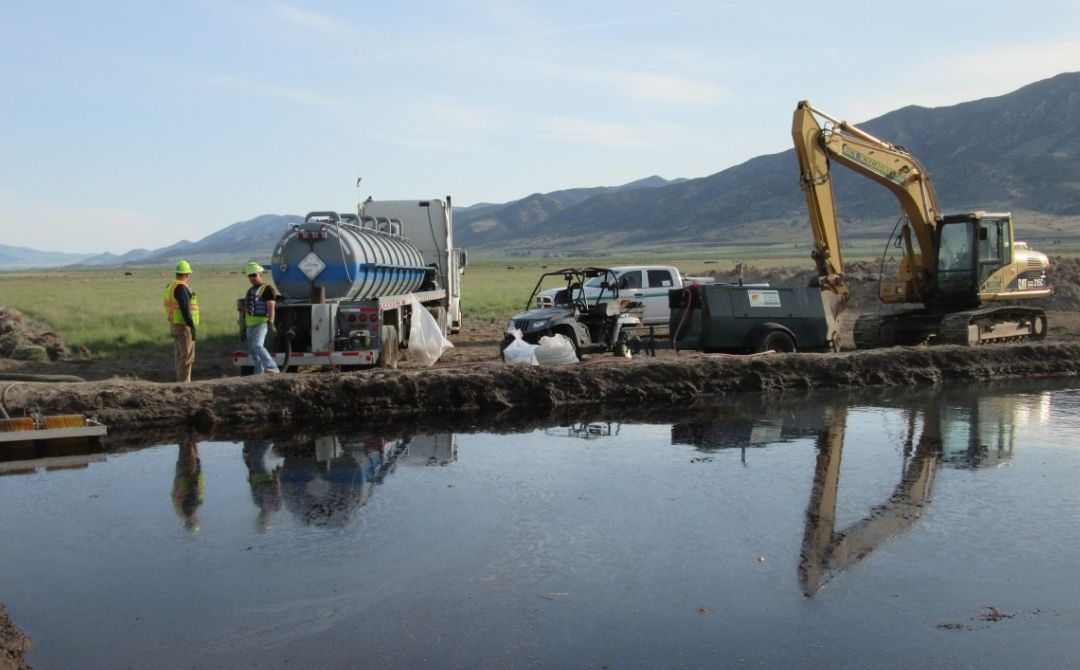
The Anatomy of a Rapid Hydrocarbon Spill Response: From 911 Call to Site Restoration
When a hydrocarbon spill occurs—whether from a tanker accident, pipeline release, or industrial site incident—time is everything. A swift, coordinated response not only prevents environmental damage but also reduces liability, protects public safety, and restores operations faster. At Enviro Care, we’ve built a proven emergency response workflow that enables us to mobilize within minutes and deliver end-to-end site restoration.
In this article, we’ll walk through the anatomy of a hydrocarbon spill response, step by step—from the initial 911 call to final site restoration.
Step 1: Emergency Call & Mobilization
Every rapid response begins with a phone call. Once Enviro Care receives notification of a spill—often through emergency services, regulatory agencies, or directly from a client—our 24/7 response team is activated.
-
Initial Assessment: We gather critical details such as spill location, product type, estimated volume, safety hazards, and immediate risks.
-
Dispatch: Within minutes, we mobilize field crews, certified HazMat technicians, and response equipment.
-
Coordination: We establish communication with local authorities and the client’s emergency contacts to ensure a unified approach.
Step 2: On-Site Incident Command
Upon arrival, our response leaders set up an Incident Command System (ICS) to manage the site efficiently and safely.
-
Site Safety Evaluation: Air monitoring, fire risk assessment, and PPE requirements are determined.
-
Containment Priority: Immediate measures (such as berms, booms, and absorbent barriers) are deployed to stop the spread of hydrocarbons into soil, groundwater, or waterways.
-
Regulatory Notifications: Coordination with state and federal agencies ensures compliance and transparency.
Step 3: Containment & Recovery
Stopping the spread is only the beginning. The next phase is active recovery of hydrocarbons.
Tools & Equipment Used:
-
Vacuum trucks for liquid fuel removal
-
Skimmers & pumps for separating hydrocarbons from water
-
Absorbent booms, pads, and socks for containment in waterways
-
Excavators & loaders for contaminated soil removal
-
Portable storage tanks for safe product transfer and disposal
This combination allows us to capture both free product and contaminated media quickly, minimizing environmental impact.
Step 4: Remediation & Site Restoration
Once the spill is contained and bulk hydrocarbons are removed, long-term remediation begins.
-
Soil Excavation & Replacement: Contaminated soil is transported for approved disposal, and clean backfill is placed.
-
Bioremediation & Soil Treatment: In cases where excavation is limited, microbial agents or chemical treatments are used to break down hydrocarbons on-site.
-
Groundwater Monitoring & Treatment: Pumps and filtration systems remove and treat contaminated groundwater until levels return to regulatory standards.
-
Final Restoration: Grading, landscaping, or structural repairs return the site to pre-incident conditions.
Step 5: Documentation & Compliance
Every response concludes with detailed documentation and reporting. Enviro Care provides clients with a comprehensive closure report, including:
-
Spill assessment data
-
Response actions taken
-
Waste manifests & disposal records
-
Laboratory test results
-
Regulatory compliance confirmation
This ensures clients are protected legally and financially while demonstrating full environmental accountability.
Case Example: Fuel Truck Accident on Highway Shoulder
Recently, Enviro Care responded to a fuel truck rollover along a Utah highway, releasing several thousand gallons of diesel onto the roadside and into a nearby drainage ditch.
-
Timeline: Crews were on-site within 45 minutes of the initial call.
-
Actions Taken: Fire hazards were mitigated, vacuum trucks recovered free product, and contaminated soil was excavated. Absorbent booms prevented the spread into a nearby creek.
-
Outcome: Within 48 hours, the highway shoulder was stabilized, excavation completed, and backfill placed. Final water sampling confirmed no downstream contamination.
This case highlights how a structured, rapid-response workflow prevents environmental escalation and restores public safety in record time.
Why Enviro Care?
With decades of experience and a fleet of specialized equipment, Enviro Care is one of the fastest and most reliable spill response companies in the region. Our combination of emergency readiness, technical expertise, and full-service restoration makes us the trusted partner for industries, municipalities, and contractors across the West.
Need emergency spill response now? Enviro Care is available 24/7. Call the Enviro Care rapid response hotline at 800-820-9058 to mobilize immediately.
